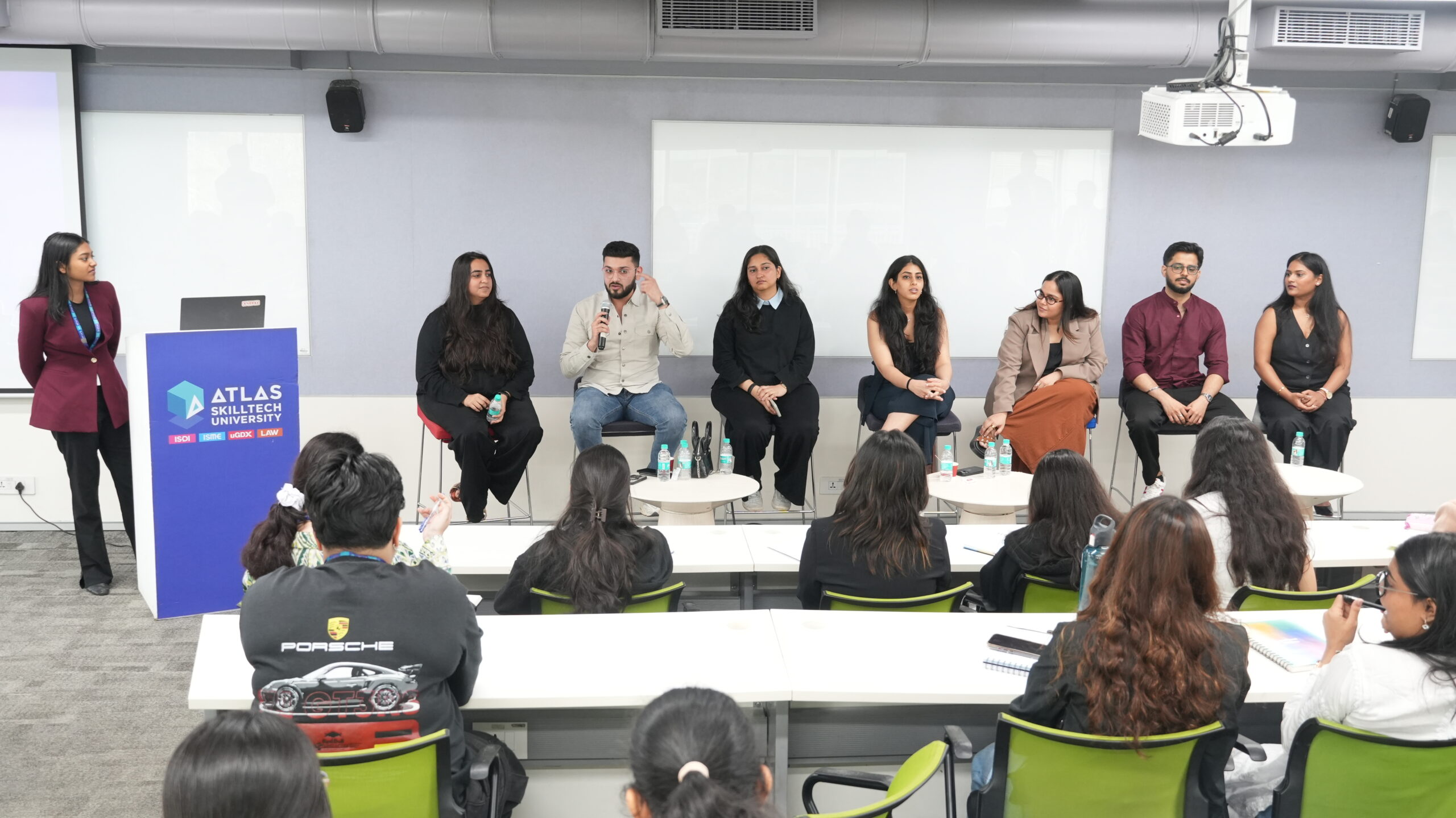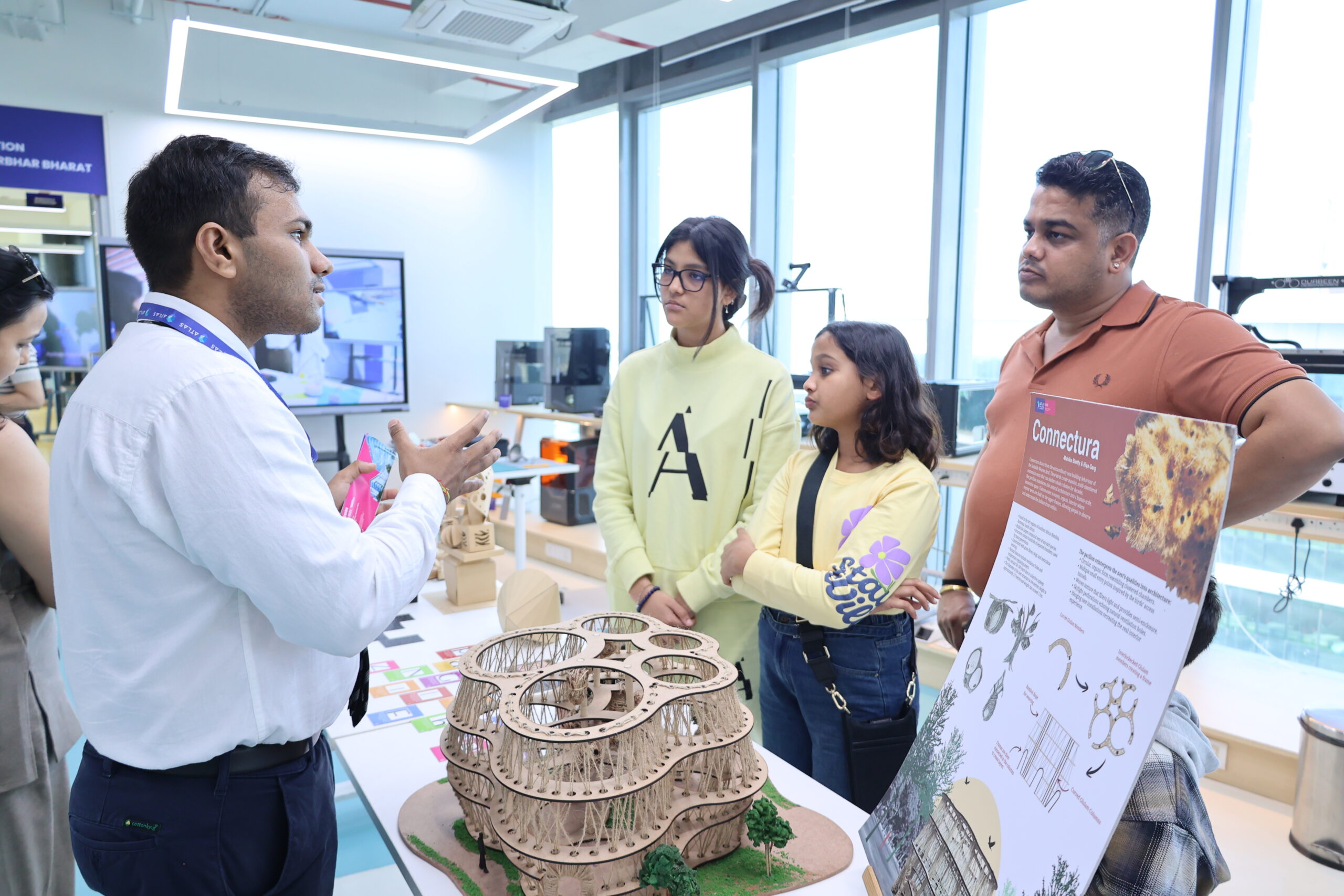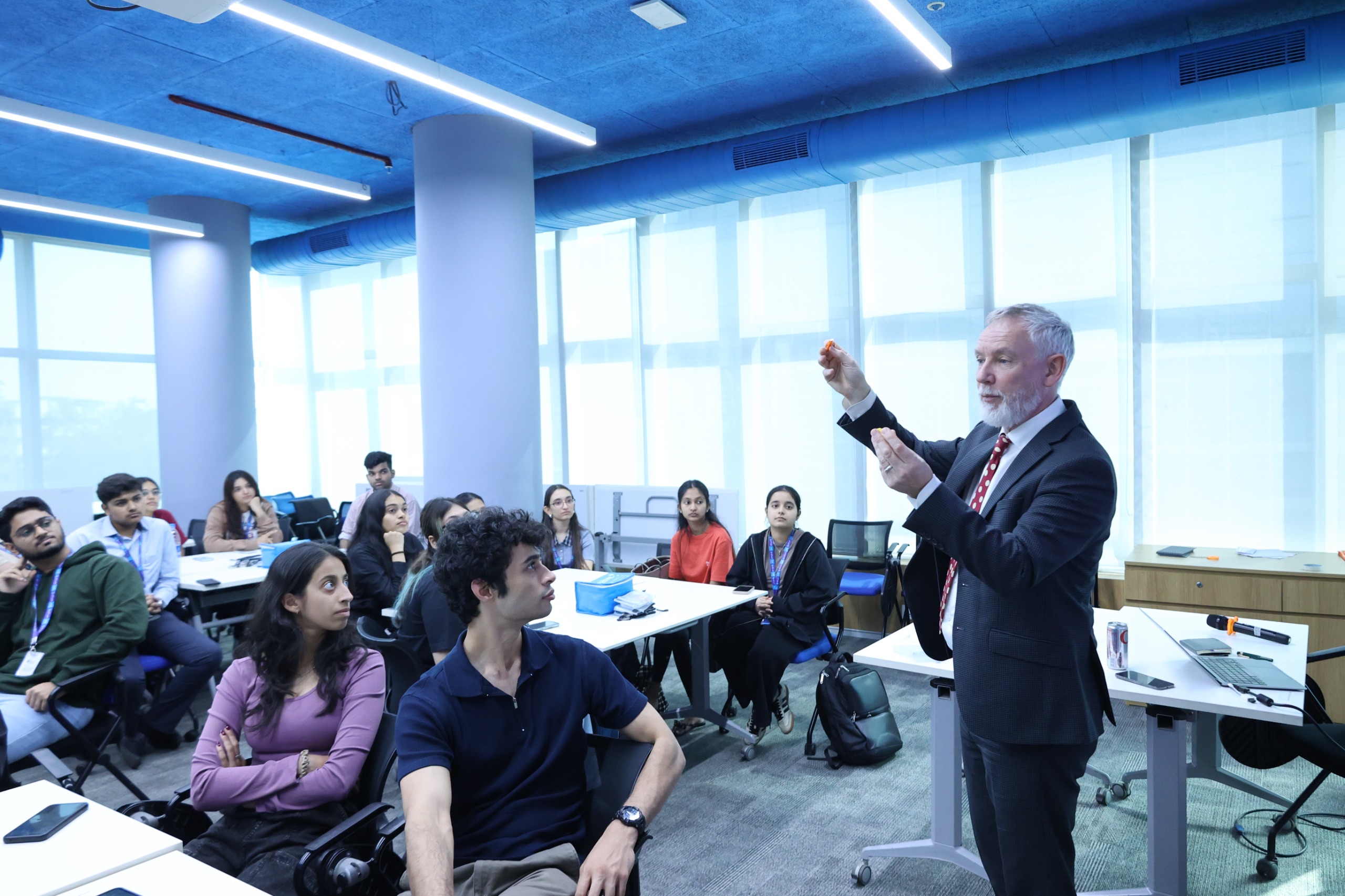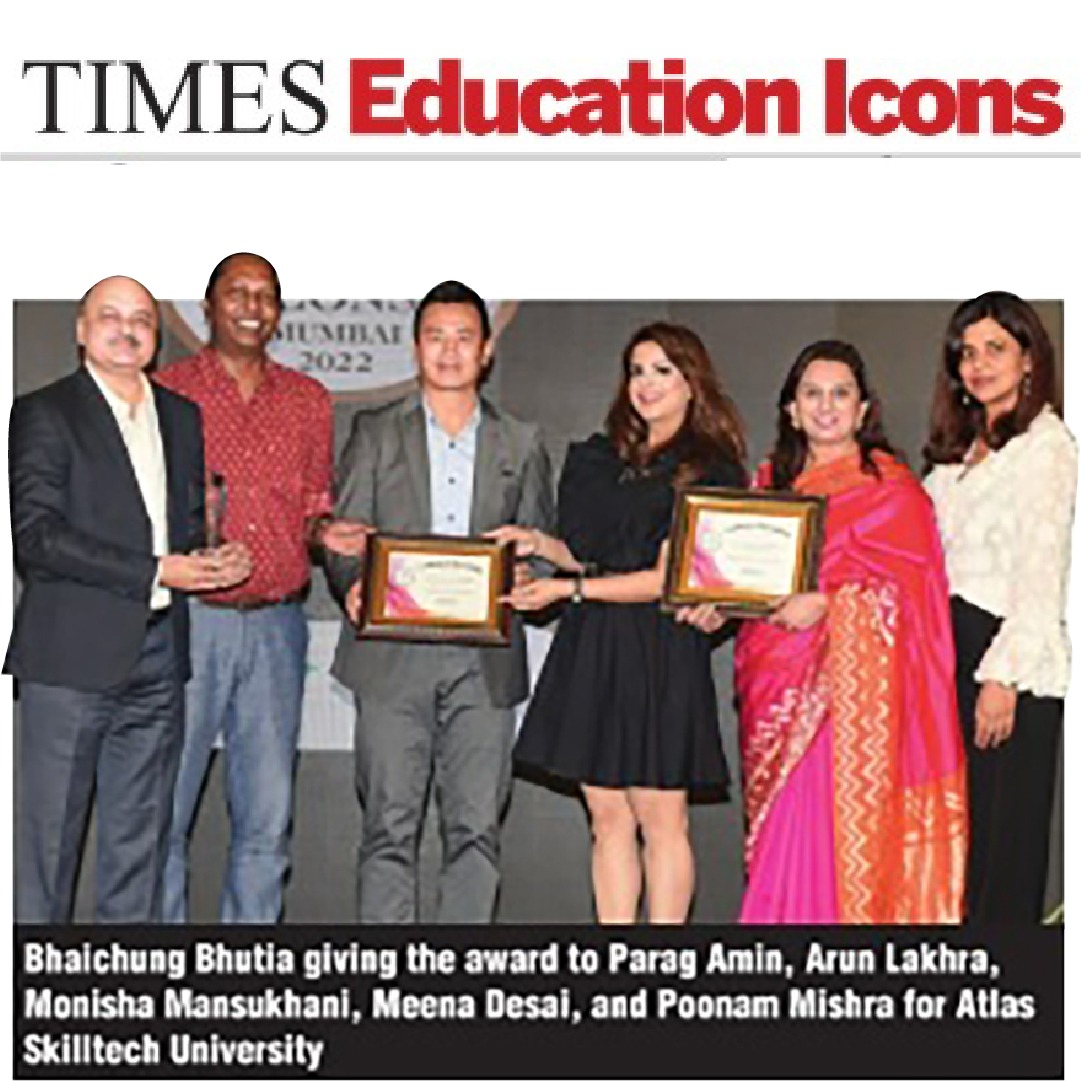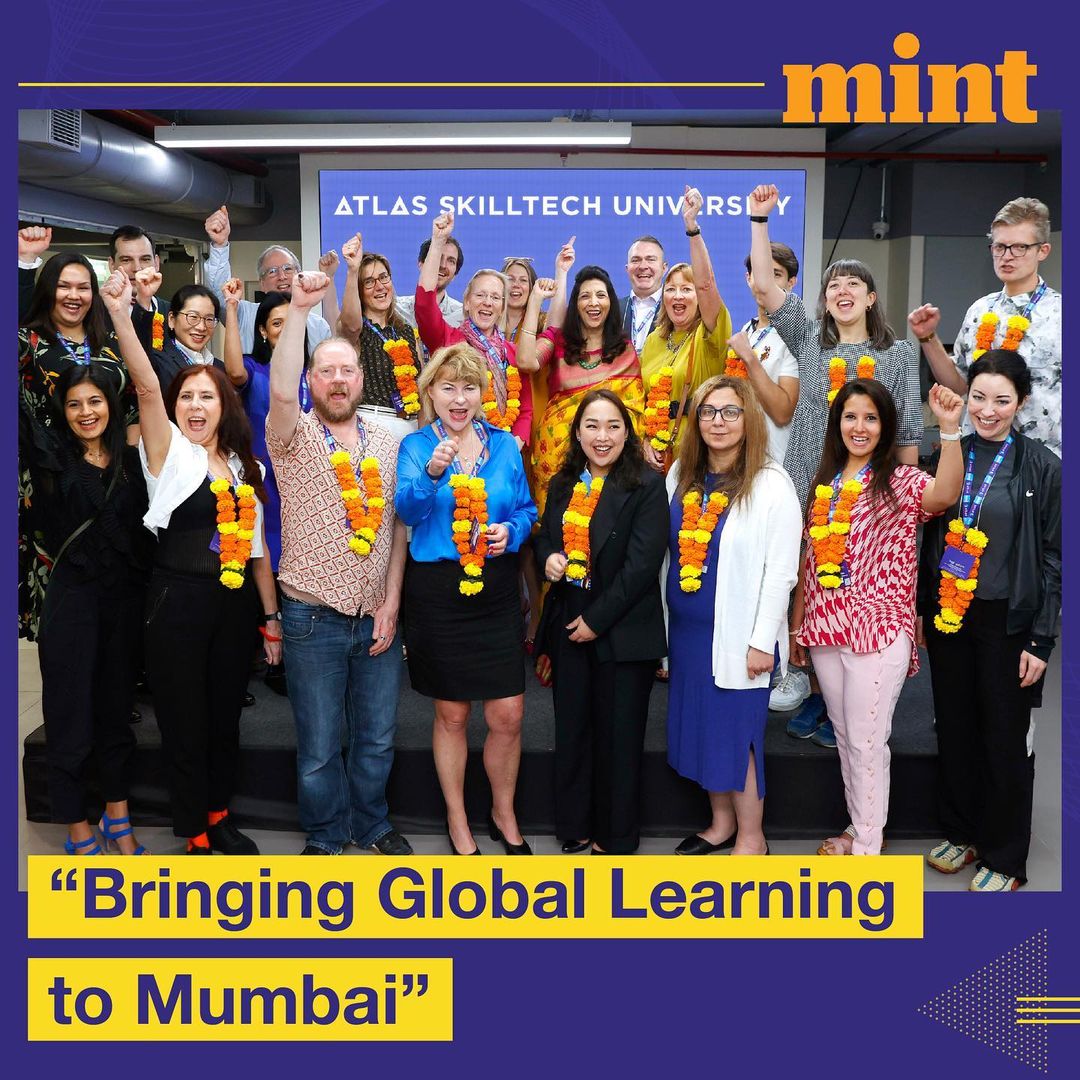Alpha talks with Malini: Interview of Dr. Indu Shahani
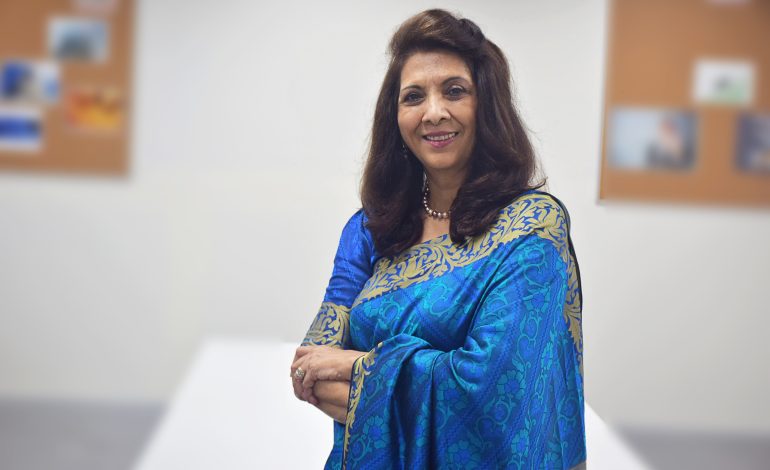
Prepare to be inspired by the insights of a true educationist extraordinaire. Dr. Indu Shahani, Founding President and Chancellor of ATLAS SkillTech University, was recently interviewed by Malini Agarwalla for Rotary District 3141’s YouTube show Alpha talk with Malini. In a candid conversation, Dr. Shahani decodes the rapidly evolving education systems, offering invaluable perspectives on the challenges and opportunities facing today’s learners. Today, we bring you a literary adaptation of this enlightening interview, packed with wisdom and inspiration for anyone passionate about education.
How did the students’ experience of meeting Apple CEO Tim Cook during his visit to the ATLAS campus impact their education and career aspirations?
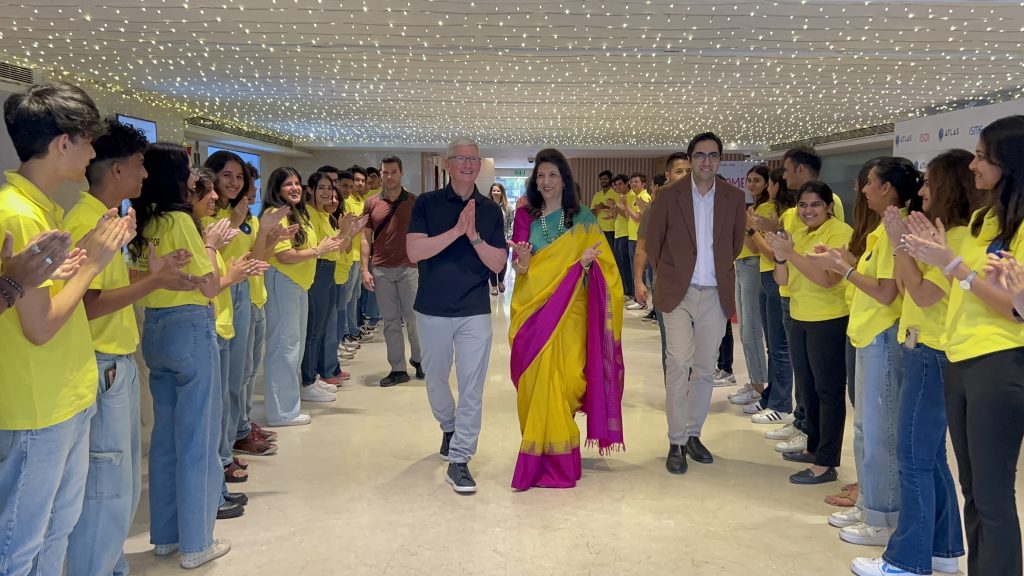
Apple CEO Tim Cook’s visit to the ATLAS campus was truly inspiring, especially for the students who had the opportunity to meet him. During his visit, Cook emphasised the importance of being different, having ambition and practicing humility with a purpose. He was particularly impressed with the creative and sustainable projects that many of the students had undertaken. It was evident that Cook doesn’t just talk about humility, but practices it too. He visited the campus without any fanfare and interacted with the students, discussing their work and encouraging them to remain creative throughout their lives. His message is a powerful one for all of us, especially in the field of education, where curricula can quickly become outdated. As we move further into the 21st century, it’s essential that we adopt a more creative approach to teaching and learning and I believe that Cook’s visit serves as a timely reminder of this.
As an educationist, how crucial do you believe it is to embrace the concept of unlearning?
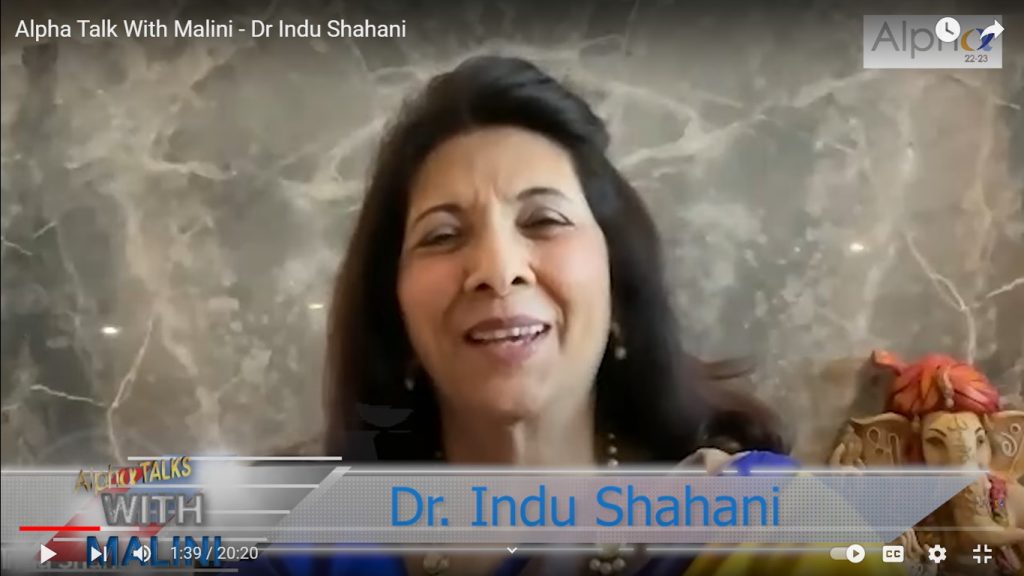
I believe that embracing the concept of unlearning is crucial, not just sometimes, but all the time. Today’s fast-paced world requires us to prepare students for challenges that we can’t even predict. The idea that earning a degree at 22 and being set for a career is no longer relevant. Jobs of the future are constantly evolving and education needs to keep up with the rapid pace of technological advancements.
Let me share an experience to illustrate the importance of unlearning. I was teaching advertising and media in many colleges when I received a call from an advertising agency offering job vacancies. The job title was “mood analyst,” and the applicants had to decide what the job description was. I was at a loss as to how to prepare my students for this job as I had never come across it in any of my textbooks. To teach them, I took them to a Gucci store and asked them to observe customers’ moods and analyse how their behavior affected the products they were interested in. This exercise helped them understand the importance of customer moods and how media and advertising could adapt to them.
It’s crucial to unlearn old teaching methods and be open to new ideas to prepare students for the jobs of the future. We must provide them with the skills to adapt and learn on the go to succeed in this ever-changing world.
In your opinion, should education be curriculum centric or student centric? What is the prevailing approach in our country?
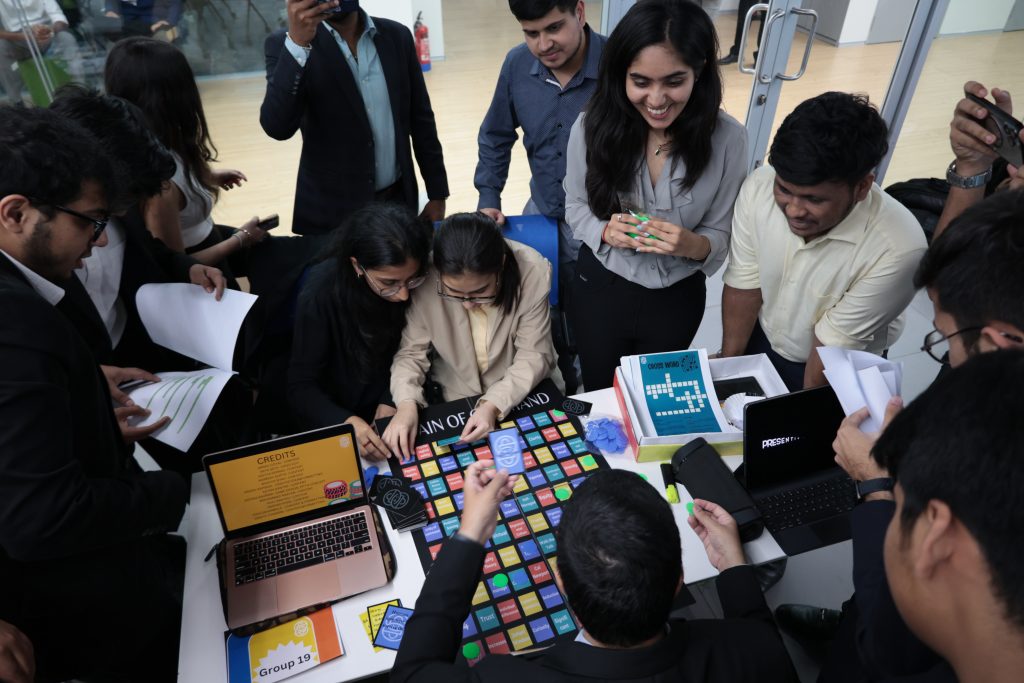
I strongly advocate for student-centric education. As the former principal of HR College, I had a sign outside my cabin that read “students push the door, faculty knock and come in.” I have always put students at the forefront of my approach to education, even as the current Chancellor of the University. Any student can come and talk to me at any time and I make it a point to be accessible to them.
Student-centricity is not an easy concept to grasp. Essentially, it means making education more democratic, individualised and personalised. Technology has played a key role in democratising education by making it more accessible to a larger number of students through online learning platforms. We at ATLAS encourage our faculty to continue teaching those who cannot afford to come to our colleges, thus making education more inclusive and equitable.
Personalisation is another key aspect of student-centric education. Every student has unique learning preferences and interests and it is important to understand what motivates them. At ATLAS, we involve our students in designing the programs they would like to study, thus creating a curriculum that is more relevant and meaningful to them. Lastly, it is important to recognise that students are dynamic, and their needs and interests evolve over time. Curriculum, on the other hand, tends to remain static. Therefore, it is essential to involve students in the process of making the curriculum more student-centric, ensuring that it is engaging and enriching for them. Let’s work together to make education more student-centric and empowering for all.
How can we bridge the gap between the current education being imparted and the professional requirements? What steps can we take to make education more topical and relevant to the current industry demands?
The key to making education topical and relevant is exposing students to the real world. Education can’t be confined to the classroom alone. Real-life experiences are invaluable in giving students a well-rounded education. One of my favorite classes was taught at a Starbucks, allowing students to learn about marketing in an environment where they could see the consumers, products and marketing strategies in action. This kind of experiential learning stays with students for a lifetime. Analysing data is another powerful tool that helps students connect with the real world.
Another way to connect students to the real world is by encouraging them to engage with their local communities. The Rotaract Club of ATLAS is a great example of this. They started a community fridge where anyone can access free food, and the students replenish it regularly. Such initiatives help students to see the real impact of their work and become more involved in community service.
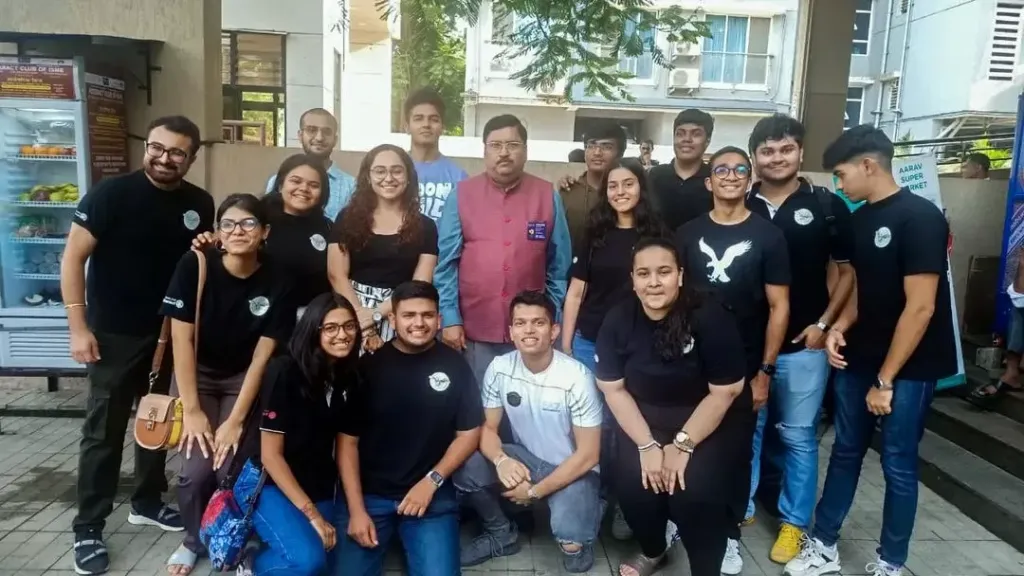
Connecting with the corporate world is also crucial in preparing students for jobs, while staying up-to-date with technological advancements is essential in preparing them for the future. Therefore, we must focus on bridging the gap between classroom learning and the real world by providing more experiential learning opportunities and encouraging students to engage with the world around them.
How do you anticipate technology’s continued impact on ethics in education and what steps can be taken in response? Do you believe it will have a significant effect, and if so, in what ways? Please share your perspective.

The evolution of technology is an undeniable force that has been shaping the world. However, let us not forget that technology is merely a tool, not a replacement for human intellect. It’s a tool to stimulate thought and ideas, but ultimately it is the human mind that leads the way.
Ethics is a universal principle that applies to all aspects of life, not just technology. It is the foundation of our behavior in education, workplace and corporate practices. While the integration of technology into our daily lives raises ethical concerns, strong ethical values will always guide us. As educators, we must instill ethical behavior in our students from the very beginning. With a solid foundation in ethics, the advancement of technology will never be an obstacle in our path.
How effectively is our current education system producing responsible global citizens? What measures have been taken or are required to ensure that we are equipping students with the necessary skills and knowledge to contribute positively to our planet?

Community engagement and instilling a strong value system in students should be the top priority of education institutions. While degrees are important, it’s the responsibility and commitment to society that graduates carry with them. We need to start embedding these values in students from the beginning by offering courses on skills and sustainable practices. In fact, the entire education system should be centered around sustainability because that’s the future. This should be reflected in everything from campus design and infrastructure to curriculum development, research, innovation and community engagement.
About Dr. Indu Shahani
Dr. Indu Shahani is a visionary leader, a dynamic academician and an exemplary institution builder with an illustrious career spanning over four decades. As the Founding President and Chancellor of ATLAS SkillTech University, she has taken on the challenge of creating an educational institution that is dedicated to the holistic development of students, nurturing them to become professionals with a heart.
Dr. Shahani’s exceptional career is a testament to her unwavering commitment to excellence. She has held numerous prestigious positions, including Sheriff of Mumbai in 2008 and 2009, Member of the University Grants Commission from 2011 to 2014 and Principal of H.R. College of Commerce & Economics in Mumbai from 2000 to 2016. Her leadership and vision have been instrumental in building and transforming these institutions into centers of excellence.
As a pioneer in the field of education, Dr. Shahani was the first Indian to be appointed Vice-Chair on the Board of Governors of the International Baccalaureate (IB). Her contributions to the field of education have been widely recognised and she has been invited to serve on the boards of numerous leading corporate companies, including Colgate Palmolive (India) Limited, United Spirits Limited – Diageo, HSBC Asset Management, Bajaj Electricals Limited, Clariant, Eureka Forbes Limited and Lighthouse Learning Limited.
Dr. Shahani’s PhD from the University of Mumbai focuses on the critical issue of “Academia-Industry Collaboration,” reflecting her commitment to bridging the gap between education and industry. With her exceptional skills and expertise, Dr. Shahani has been a driving force in bringing academia and industry together, creating meaningful partnerships that benefit both sectors.
Dr. Indu Shahani is a highly accomplished and respected individual whose remarkable achievements and tireless efforts have had a profound impact on the field of education and beyond. Her vision, leadership and passion have made her an inspiration to many and she continues to inspire the next generation of leaders and professionals with her unwavering commitment to excellence.

